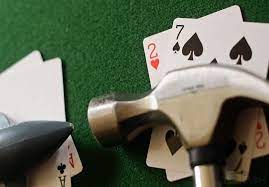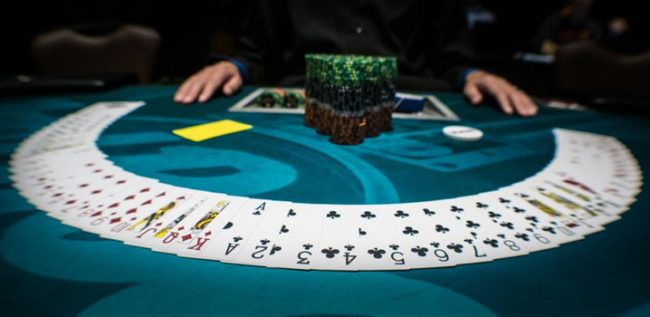One of the things that I see when I play poker are bad beats. Sure, you can’t control what cards you or your opponents receive, but there is always a limit to worst and best playing. Going all-in with a weak hand is one thing, but losing a big hand to a poor poker play is something else entirely. In this article I will discuss three of the more common poker bad beat stories that you may want to avoid by learning to avoid them the best way.
Bad Beat Jackpots
First of all, let’s start with the most common problem with bad beats. You have pocket 8s at a $1/$2 table. You raise pre-flop and get one caller. The flop comes 4c-5c-6c. Your opponent bets out on the flop but boom, your opponent gets a big hand like pocket Q’s! Doh!
At this point, you decide to slow down. You called the flop too high and you are taking a chance on a single card showed. You aren’t Gaming rescue you’re taking a chance on getting outkicked.
Secondly, you’ve lost a big portion of your stack to a draw. Sure, you’ve got your opponent covered if you finish the hand right there, but you’ve got a potential problem on your hands. You may not have a lot of chips left, and your opponent may have figured out you are playing a lot of hands.
Asia was the setting this week for Season IV of the QQdewa Caribbean Adventure. While this was great for me, poker players shouldn’t take themselves out of the picture when talking about the event. I had a lot of fun, only got slightly better than 50c from 3 hours of play, and I had several losing sessions that I can recall. After that session though, I realized it was time to take break and didn’t come back. Had I come back that day I may have still lost, but eventually that wouldn’t have been a problem because I had learned a lot that day and would have had a better idea of what to do in a few hours.
Another incident took place in the early part of this event. I had just about doubled up as I was runner-up to the event’s lower prize. I was moving up fairly quickly in the pay scale, so I was somewhat safe.
Then came the giving-hand incident. I had Q-Js against A-8s. The flop was A-7s-8h. A player in middle position bets $3.50. Everyone folds to me. I make the call, mainly because I want to see if the button has anything, and also because I want to see the turn if it comes. The button, a player who had nothing up to this point, makes a pot sized bet of $6.50. It is folded around to me and I make the call. The turn is a blank. I check and the button bets $10.50. It is folded around to the button and I make the call.
The river is a blank. The player in the Small blind makes a $1.50 bet. I make the call. He has A-8 and I have Q-8. To make a long story short, I lose the hand and a $52 bonus because of the lousy call.
Recall this hand? I Ends up with a loss of $52 and the bonus. I feel terrible for folding what should have been the winning hand. But what I am trying to say is, a bad beat can ruin your game. You shouldn’t let a bad beat keep you from playing your best. Learn from your mistakes. Don’t make them again. Required reading to prevent making them again.
If the Small blind or the Big blind has a premium hand and the other player just calls, as a general rule of thumb, the Premium hand will win.
Conclusion
Probably the most important concept to keep in mind. If you have Q-8 and you get a call from the Small blind or Big blind, it is typically a good idea to fold. There are a number of reasons for this, so we will get into that later. This just gives you an idea of the general equity you should be looking for in making your decisions. Of course, any time you are up against better than 2 player, you want to be in the hand. One of the weakest buttons you can have is one player calling all-in with no backup plan. Even when you make the right reads, you will still lose if the other player has a premium hand.
There are some hands that you are comfortable going all-in with. You can comfortably call all-in with any pair, if you are in late position and no one has raised the pot.


